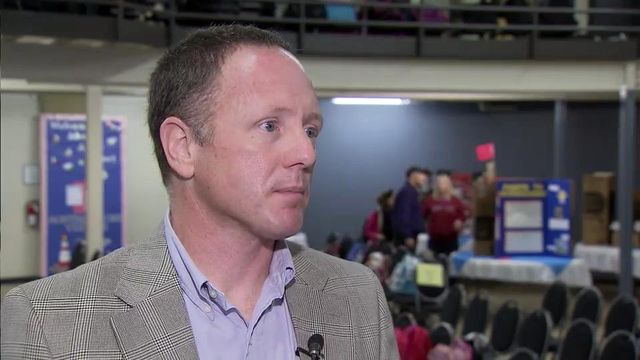Ex-NCAE lobbyist switches sides in voucher debate
As the North Carolina Supreme Court prepares to hear arguments in a lawsuit challenging the legality of the state's school voucher program, one of the program's chief critics has decided to lend his support to expanding vouchers in North Carolina.
Posted — UpdatedBrian Lewis repeatedly slammed the Opportunity Scholarship program when he served as vice president of the North Carolina Association of Educators, which filed suit to overturn the 2013 law that created it.
Lewis, who set up his own lobbying firm a year ago, now says he sees the need for vouchers to help low-income families.
"We need to have a discussion about children and what's best for children," he said.
Lawmakers set aside $10 million for the Opportunity Scholarships program, which drew thousands of low-income families seeking annual grants of up to $4,200 per child to help defray the cost of tuition at a private or religious school.
The first $730,000 in tuition money for more than 360 students was about to be distributed to schools when a Superior Court judge in August halted any disbursement. The state Court of Appeals later ruled that 1,878 students who had already accepted the vouchers before the August ruling could receive the money.
The NCAE and the North Carolina School Boards Association, which filed a separate lawsuit over the voucher program, argued that spending taxpayer money on private schools is unconstitutional, especially when some of the schools discriminate in their admissions and don't have the academic standards or accountability of public schools. Dozens of local school boards across North Carolina also have challenged the program.
"To say that a $50 million scholarship program for poor children living in poverty is taking away from the public education classroom is wrong," Lewis said. "I think, in many ways, it is complementing public education."
Lewis maintains his allegiance to public schools – his son attends a public school – but it was his daughter's need for a private education that turned his thinking on vouchers. He said he can afford the tuition, but he is painfully aware that others cannot and worries that their children may be left behind.
"Five to 10 years from now, it really isn't a big deal as to what school your child attends," said Darrell Allison, president of Parents for Educational Freedom in North Carolina, a voucher proponent with which Lewis is working. "It's just, is this the best option for that child?"
• Credits
Copyright 2024 by Capitol Broadcasting Company. All rights reserved. This material may not be published, broadcast, rewritten or redistributed.






